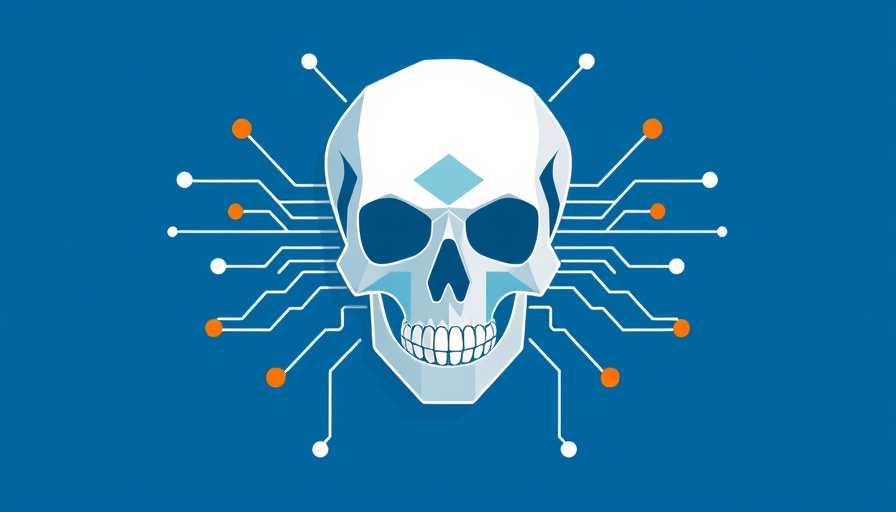
Certainity of Cyber Crime: Is AI Making It Worse?
The digital landscape is undergoing rapid transformation as artificial intelligence (AI) technology becomes more prevalent. For entrepreneurs and businesses in the Bay Area, the promise of AI brings not only new opportunities but also significant challenges—especially in the realm of cybersecurity. As cybercrime surges, the pertinent question arises: will AI act as a double-edged sword, offering innovative solutions while simultaneously increasing vulnerability to attacks?
The Rise of Cybercrime in a Digital World
In recent years, cybercriminals have exploited technological advancements to evolve their strategies and tactics. Reports indicate that incidents of cybercrime have increased dramatically, with significant financial losses for businesses across every sector. In particular, the Bay Area has become a hotbed for sophisticated cyber-attacks, as numerous Silicon Valley startups find themselves grappling with the dual demands of advancing technology and safeguarding their digital assets.
According to the FBI’s Internet Crime Complaint Center, instances of phishing, ransomware attacks, and data breaches have skyrocketed. For instance, small businesses, which have less robust cybersecurity measures in place, face the brunt of attacks, often leading to devastating impacts on their operations.
AI: A Boon or a Bane for Cybersecurity?
Artificial intelligence shows promise in creating proactive cybersecurity systems. Machine learning algorithms can analyze vast amounts of data to identify and respond to threats in real-time. For Bay Area startups, leveraging AI could mean enhanced threat detection capabilities and rapid response mechanisms, thus improving resilience against potential attacks.
However, cybercriminals can also harness AI tools to conduct more sophisticated attacks. Technologies such as deepfakes and automated phishing tools enable hackers to mask their identities and launch targeted attacks with increased efficacy. As startups and established companies alike turn to AI to protect their digital assets, it raises critical discussions about the arms race between cybersecurity measures and malicious actors.
A Healthier Tech Ecosystem Through Business Collaboration
The importance of cybersecurity awareness can’t be overstated. In the face of rising threats, companies in the Bay Area are starting to recognize the value of collaboration within their ecosystems. By forming alliances to share intelligence and best practices, businesses can bolster their defenses against cybercrime. This approach not only strengthens individual companies but enhances the community's overall cybersecurity posture.
Partnerships among startups, venture capitalists, and cybersecurity experts can result in innovative solutions that deter attacks. The growing trend of corporate responsibility calls for businesses to focus on sustainability and security simultaneously. Emphasizing a culture of transparency and proactive measures can aid in mitigating risks associated with cyber threats.
Moving Forward: Strategies for Cyber Resilience
To navigate the intricacies of increasing cybercrime, Bay Area businesses must adopt comprehensive cybersecurity strategies that incorporate AI technology while remaining vigilant about its potential pitfalls. Creating a culture of cybersecurity awareness, regularly updating security protocols, and investing in employee training are crucial steps for enhancing resilience against attacks.
Moreover, organizations should continually assess and adapt their cybersecurity frameworks to stay ahead of the evolving threat landscape. Engaging with industry experts and utilizing data-driven insights can empower businesses to anticipate and counteract new forms of cybercrime.
Impact on Business Growth and The Bay Area Economy
As the need for robust cybersecurity measures becomes paramount, Bay Area entrepreneurs are faced with a unique set of challenges and opportunities. Successfully addressing cybersecurity demands not only protects their businesses but also fosters trust among consumers and partners, critical for sustainable growth. When companies prioritize cybersecurity, they create a competitive advantage while simultaneously contributing to the stability of the Bay Area's economy.
In conclusion, the threat of cybercrime continues to loom large over businesses, particularly in fast-paced sectors like tech. However, with strategic investments in AI-driven security solutions and a commitment to collaboration within the business community, Bay Area startups can cultivate an ecosystem resilient against cyber threats. Embracing these changes is essential for maintaining operational continuity and driving future growth.
 Add Row
Add Row  Add
Add 



Write A Comment